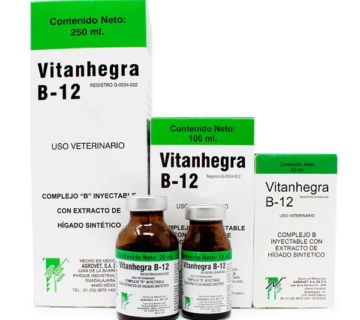Racehorses are elite athletes that require specialized care to maintain their health, performance, and well-being. One critical component of this care involves the use of medications and supplements. Administering these substances responsibly is essential for ensuring the safety of the horse, compliance with racing regulations, and optimal performance. This guide will delve into safe medication practices, highlighting dosage guidelines, storage tips, and the importance of veterinary consultations.
Why Safe Medication Practices Matter
Racehorse medications are powerful tools that can aid in recovery, manage pain, or enhance performance under veterinary guidance. However, improper use can lead to serious consequences, including health risks for the horse, disqualification from events, and legal repercussions for the owner. Safe practices ensure:
- Horse Welfare: Minimizing the risk of side effects or long-term health issues.
- Regulatory Compliance: Meeting racing industry standards to avoid penalties.
- Optimal Performance: Enhancing the horse’s potential without compromising its health.
Safe Medication Practices for Racehorses

Dosage Guidelines
Administering the correct dosage of medication or supplements is paramount. Overdosing can lead to toxic effects, while underdosing may render the treatment ineffective. Here are essential tips for adhering to proper dosage guidelines:
- Read the Label Thoroughly: Each product comes with specific instructions for use. Follow these guidelines meticulously. For example, products like Equine Joint Supplements have detailed dosage information based on the horse’s weight and condition.
- Consult with a Veterinarian: A veterinarian’s expertise is crucial in determining the appropriate dosage. Factors such as age, weight, health status, and workload influence the ideal amount.
- Use Accurate Measuring Tools: Never estimate dosages. Use calibrated syringes, measuring spoons, or other tools provided with the product. For instance, when administering Horse Electrolyte Supplements, ensure the amount matches the horse’s activity level and sweat loss.
- Adjust for Specific Needs: Some horses may require modified dosages based on unique needs or sensitivities. Always confirm adjustments with your veterinarian.
- Monitor for Reactions: After administering any medication or supplement, observe the horse closely for any adverse reactions or unexpected side effects.
Storage Tips
Proper storage of medications and supplements is critical to maintaining their efficacy and safety. Poor storage conditions can degrade these products, making them ineffective or harmful. Follow these tips to ensure optimal storage:
- Temperature Control:
- Store products in a cool, dry place unless otherwise specified. For example, many equine supplements require storage at room temperature to prevent degradation.
- Avoid exposure to extreme temperatures, such as in barns without climate control.
- Protect from Moisture:
- Keep products in sealed containers to prevent contamination from humidity or spills.
- Check powders or granules for clumping, which could indicate moisture exposure.
- Check Expiry Dates:
- Regularly review the expiration dates of all medications and supplements. Expired products should be discarded immediately.
- For items like Equine Calming Supplements, which are often used before stressful events, ensure they are fresh and potent.
- Secure Storage:
- Store medications out of reach of children and animals.
- Label each product clearly and separate medications by type to avoid accidental misuse.
- Follow Manufacturer Instructions:
- Many products have specific storage instructions. Always adhere to these to preserve the integrity of the product.
Importance of Veterinary Consultations
Veterinary consultations are an indispensable part of safe medication practices. A veterinarian provides expert advice tailored to your horse’s specific needs and ensures compliance with racing regulations. Here’s why you should always involve a vet:
- Accurate Diagnosis:
- Vets can determine the root cause of an issue, ensuring that the correct medication or supplement is administered.
- Custom Treatment Plans:
- Each horse is unique. A vet considers factors like the horse’s age, weight, and workload to recommend a tailored treatment plan.
- Monitoring Progress:
- Regular check-ups allow vets to monitor the horse’s response to treatment, making adjustments as needed.
- Compliance with Regulations:
- Veterinarians are familiar with the rules and restrictions of various racing authorities. They can guide you in choosing medications and supplements that comply with these regulations.
- Emergency Care:
- In cases of adverse reactions or overdose, a vet’s immediate intervention can be life-saving.
For veterinary-approved products, visit our Abbey Veterinary Supply store. We offer a range of trusted medications and supplements for racehorses.
Safe Medication Practices for Racehorses

Additional Tips for Safe Medication Practices
- Keep Detailed Records: Maintain a log of all medications and supplements administered, including dosage, date, and time. This record is invaluable for tracking the horse’s progress and ensuring compliance during inspections.
- Avoid Combining Products Without Approval: Some medications and supplements may interact negatively when combined. Always consult your veterinarian before introducing new products.
- Stay Updated on Regulations: Rules regarding allowable substances in racehorses vary by jurisdiction and can change. Keep abreast of these updates to ensure compliance.
- Educate Your Team: Ensure that everyone involved in the horse’s care, from trainers to grooms, understands safe medication practices. Clear communication prevents errors.
- Invest in High-Quality Products: Purchase medications and supplements from reputable suppliers like Abbey Veterinary Supply to ensure quality and safety. Banamine 100ml
Safe Medication Practices for Racehorses Conclusion
The health and performance of racehorses hinge on responsible medication practices. By following dosage guidelines, adhering to proper storage techniques, and prioritizing veterinary consultations, you can ensure your horse receives the best care possible. Additionally, choosing high-quality products from trusted suppliers, such as Abbey Veterinary Supply, guarantees the efficacy and safety of the supplements and medications you use.
Safe practices protect not only the well-being of your horse but also your reputation as a responsible owner. Stay informed, stay vigilant, and always prioritize the health of your equine athlete.



No comment